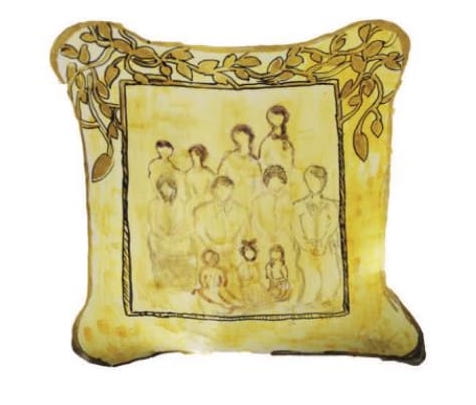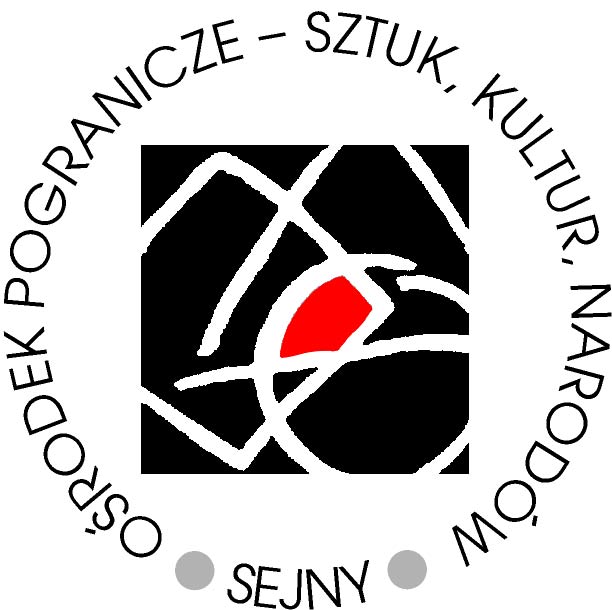
In the newest, special issue of the THINKTANK magazine, you can find a text - "Responsibility for the Europe's Borderland" written by Krzysztof Czyżewski.
Europe imagined the management of multiculturalism as the retention of individual countries’ identities. Today we know that the challenge is rather for countries to co-exist and engage in dialogue.
I well remember my first meeting with a person of a different culture. My grandparents were living in Silesia, in Chorzów. Their neighbour, Grządzielka, was Silesian and spoke Polish poorly. As small boys, my brother and I were very afraid of her. And we were continually coming home to complain: ‘Grządzielka shouted at us! We can’t understand her, the way she talks.’ To which my grandmother would answer: ‘Remember, Grządzielka is always right.’ At the time, we rebelled, but today I can appreciate my grandmother’s approach, which led to Grządzielka’s becoming a part of our family. This is the wisest answer that can be given about border culture; we have to accept that our truth is not final Such a view is necessary today, when European multiculturalism finds itself in serious crisis. I have been engaged on this question for several decades, and since 1990 I have been directing the Borderland Foundation. Its headquarters are in Sejny, an exceptional place at the meeting of Poland and Lithuania. Catholicism has for centuries been neighbours here with Judaism, and Protestantism with Orthodoxy. This is what the term ‘borderland’, which is often incorrectly confused with the idea of ‘borderline’, means. In the borderland, cultural barriers do not divide one nation from another, but cut across a multicultural, multinational, multi-faith society. They do not divide countries, but rather communities living in the same cities or regions.
Such borderlands today exist throughout Europe. On the global scale, Europe itself is one. In the vicinity of the ‘other’ there are always clashes and exchanges of arguments. With the progression of European integration, and also with the growth of immigration to Europe, we will increasingly be witness to growing cultural conflicts. Europe should learn how to live with such conflicts and how to avoid them. The wisdom of a border society lies in intuition and the knowledge of which borders must not be crossed.
Interculturalism instead of multiculturalism
I believe that Europe has four serious problems here, namely: the perception of interculturalism, pushing the problem beyond the borders, lack of strategic thinking and the improper choice of tools.
In 2008, which was announced as the European Year of Intercultural Dialogue, the Union boasted of its multiculturalism while failing to notice the crisis of European multicultural society and not engaging in any critical reflection on the causes. As a representative of the ‘Bosnian generation’ – people who were involved in the drama of former Yugoslavia’s disintegration – I consider that we have drawn insufficient conclusions from those events.
The war in the Balkans uncovered deep cracks in Europe’s understanding of what a multicultural society is. The concept of ‘multiculturalism’ in the Western world does not mean a life lived together. On the contrary, EU policy of the last decades has consisted in creating in Europe an archipelago of many cultural islands and protecting their identities. Therefore, I prefer to make use of the concept ‘interculturalism’, which assumes the co-existence of cultures and their mutual influencing of one another. It is a different perception, which puts emphasis on living together and not separately. We need to think more deeply on the subject today.
A response to the challenge – Europe’s responsibility
The second problem related to the identity of the Old Continent is the recognition that interculturalism and its management are Europe’s responsibility. The EU and its member countries have a tendency to project their problems abroad – to seek the ‘guilty’ party elsewhere. It’s time to end this hypocrisy. Let’s not forget that the character of today’s continent is in large measure the effect of European colonialism. Let’s openly admit that after the devastation of two world wars Europe had to invite immigrants to help pull it up from the ruins. Let’s remember that those ruins weren’t the work of new Huns from beyond the European limes, but our own barbarians. Let’s also stop pretending that today Europe is capable of building a strong, competitive economy without immigrants: those ‘others’ who are a part of our society. Without employees from North Africa or from countries to the east of Europe, it would be difficult to imagine today the efficient functioning of many European cities, firms and households. We live with others in a very culturally varied society not at all out of charitable hospitality, but out of need, and our freedom will acquire credibility only if it is linked with responsibility.
Europe has to accept that the problem of managing and preventing intercultural conflicts is in large degree a domestic issue, and in lesser degree the result of the attitudes and convictions held by the continent’s new inhabitants. Unintentionally, Europe has after all been supporting cultural radicalisation beyond its borders. A considerable role in this area has been played by the European system of education, which is still strongly based on national identity.
I once observed in Indonesia how such an education facilitates a confrontational attitude. I was working then in the vicinity of a Hindu temple, to which the local Muslims also came to pray. Nor did faith prevent the inhabitants of a nearby Muslim village from inviting the local theatre to present the Mahabharata, which they treated as part of their cultural ethos. The piece was preceded by several verses of the Koran, and the Muslims not only knew the entire Hindu epic by heart, but treated it as their own. This is how things were until some young Muslims appeared who had been educated in European universities. They began to ask: ‘Have you gone crazy? Don’t you know who you are? How can you pray in a Hindu temple when you’re Muslims?’
This young Muslim fundamentalism, which was new to Indonesia’s religious syncretism, was the direct result of Europe’s viewing the world in categories of national identity. We discussed the mechanisms strengthening this view during the New Agora, a debate on the crisis of multicultural society which took place in 2009 in Berlin. The Moroccans from Fez who were present wondered aloud about what was happening to their young compatriots, who, being educated in the ideas of the Enlightenment, travelled to Europe only to return wearing headscarves. I don’t wish to simplify the matter or to make light of the fundamentalist environment outside of Europe. But Europe itself, with its feeling of anxiety and threat, is also strengthening radicalism. I think that a system of communicating vessels could be spoken of in this context. The European Union can’t influence the mood abroad much – in contrast to its internal situation.
Dialogue and the need to build bridges
Yet in Europe there is a lack of strategic thinking about interculturalism. This is the third problem with the current approach to managing the co-existence of many cultures and their borders. Every ad hoc solution, which temporarily defuses the situation, is insufficient. In order to combat the multicultural crisis successfully, we must restore time and the dimension of permanency to culture. What is needed is a broad front of organic and dialogue-oriented integration activities at the level of local communities. The situation is different in various countries, and the tension between societies living within the EU framework has assorted historical and social underpinnings. The response should be a well- thought-out and long-term strategic dialogue. To take the example of Germany, it can be seen that their multicultural crisis has a good deal to do with the inability of German society to integrate with Muslim society. Germans sum up their experience with the statement that the situation might be different today if the problem had been identified from the beginning and the response had been integration or educational programmes.
The question of the integration of Muslim society in Europe will not be resolved without dialogue. What is crucial here is the creation of a space for the greatest frequency of contact – a platform for discussion outside the mosque or Catholic church, where the faithful meet each other apart from society. European democracy has lost that agora, that place for meeting and exchanging views. Its lack could have catastrophic results.
In this context, the issue of Turkey’s integration with Europe becomes important. Turkey’s membership in Europe would broaden the outlook on intercultural dialogue and Europe would gain a strong partner in the Muslim world. Allowing Turkey the opportunity to accede might say much about its preparation for membership in the EU, but it would also say a great deal about the Union’s ability to integrate with a country of non-European tradition.
The fourth difficulty in the area of managing Europe’s cultural variety is the poor choice of tools. During a conference organised by the OSCE dedicated to xenophobia, nationalism and anti-Semitism in Europe, I was struck by the disproportion between the funds earmarked for monitoring and researching these problems and those for counteracting them at the local level. In Europe today we are excellently well able to beat the alarm and to research problems (the bulk of all expenditures), but we don’t know how to respond to the challenges named. I believe that we should strive to reverse these proportions and designate more money for the development of good practices, which the monitoring, databases and research programmes should promote.
Let’s get to know each other better
From the perspective of time, it’s worth appreciating that the fall of the Berlin Wall did not bring such consequences to Central Europe as it did to the countries of former Yugoslavia. Growing nationalism and extremism are becoming a problem in this part of Europe as well, however. In no time after 1989 have Polish-Lithuanian relations been as tense as they are at present. Nor is all going well on the Polish-Ukrainian border, let alone in Polish-Hungarian relations. We naively believed in a scenario where conflicts between cultures had become a thing of the past. Borderland inhabitants know, however, that tensions never entirely disappear – mutual relations could always worsen.
This threat is real today. The growth in multicultural tension is furthered by the state of affairs in which Europe finds itself today. Although European identity is strongly connected with the ideas of tolerance, cultural diversity and human rights, we feel weak and nationalism is raising its voice. People have difficulty handling a situation where their conditions are worsening, the world is losing its intelligibility, and their neighbourhood suddenly contains ‘others’, people from formerly distant-seeming countries, whose children now attend school with their own children. In addition, these ‘others’ have cultural and religious aspirations which require fulfilment. The worsening of the crisis situation visible today is the effect of a defensive approach to these phenomena, which threaten to escalate: the entrenchment of divisions in Europe into ‘own’ and ‘others’ exacerbates the conflicts. The much fiercer, confrontational form of nationalism is no longer interested in stifling conflicts, but in exciting them. Starting fires has become for such nationalists the one method of defending their ‘absolute’ truth. It is primarily in consideration of this mechanism that Europe urgently needs a more open discussion of immigration policy and methods of managing intercultural conflicts.
A fundamental gesture
Thinking of a means to overcome the crisis in the multicultural society, it is worth weighing the words of Claudio Magris, a writer to whom we awarded the title of Borderland Person (given to outstanding citizens of Central Europe who have contributed to promoting the borderland ethos). In one of his books, Magris writes that the one rational manner of resolving border conflicts is to always take the part of the other side. It may seem paradoxical and irrational, but in the long term, this type of strength – because it requires strength, courage and wisdom to say that someone else is right – does truly resolve conflicts and problems.
Europe today has a problem with achieving such an approach. At the same time, the ethos of the borderland, which makes co-existence within a multicultural society possible, does not recognise shows of repulsion or removal. It presupposes an invitation to co-participation, neighbourhood and dialogue. We have begun to consider, however, that in making the permissive movement, in opening ourselves to others, we appear to be weaker, allowing ourselves to be used. Something in the basic gesture of understanding has been impaired. Being the agents of dialogue and openness, we are constantly asking ourselves: who is to make the first move? If it is we – will it be reciprocated? And what then, if it isn’t? And yet it is precisely such gestures that create the European community.
I consider that there is no other method of creating an intercultural Europe than by dialogue. Those who mock its sense do not indicate any alternative. Carting the immigrants out of Europe or closing the borders to them is not an answer. No civilisation ever develops on just one side of the riverbank.
Speaking of the challenge of multiculturalism in Europe, I often remember Mostar and its famous OldBridge, which was destroyed during the war. Its reconstruction was the first matter to which the inhabitants of multi-ethnic Mostar addressed themselves after the war. Life without a bridge linking the two banks of the river was impossible for them, regardless of what one society thought about the other. Crossing boundaries is in human nature, and so – in spite of the risk – is building bridges.
I would thus like to remind Europeans of what my grandmother said: ‘Remember, Grządzielka is always right.’









